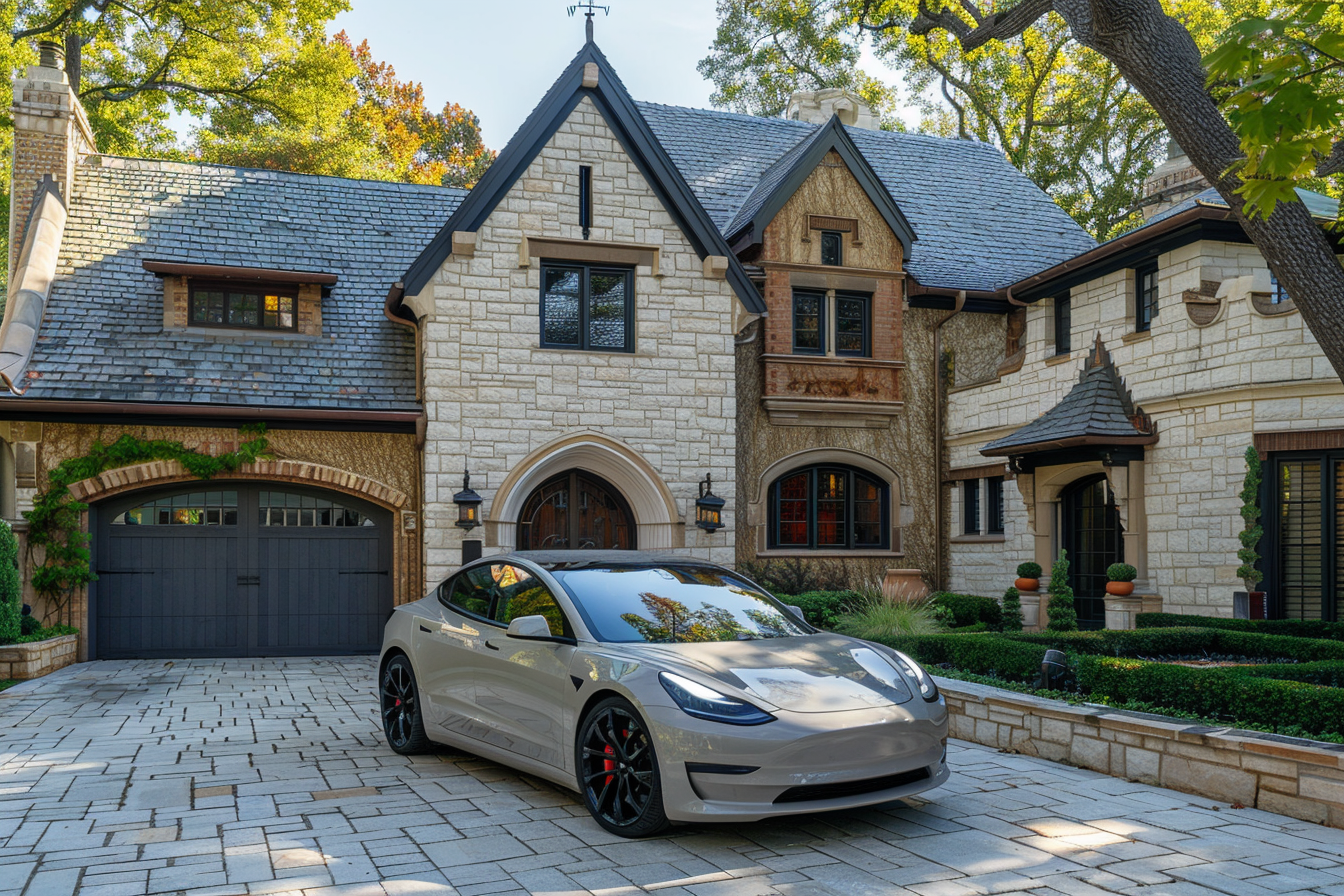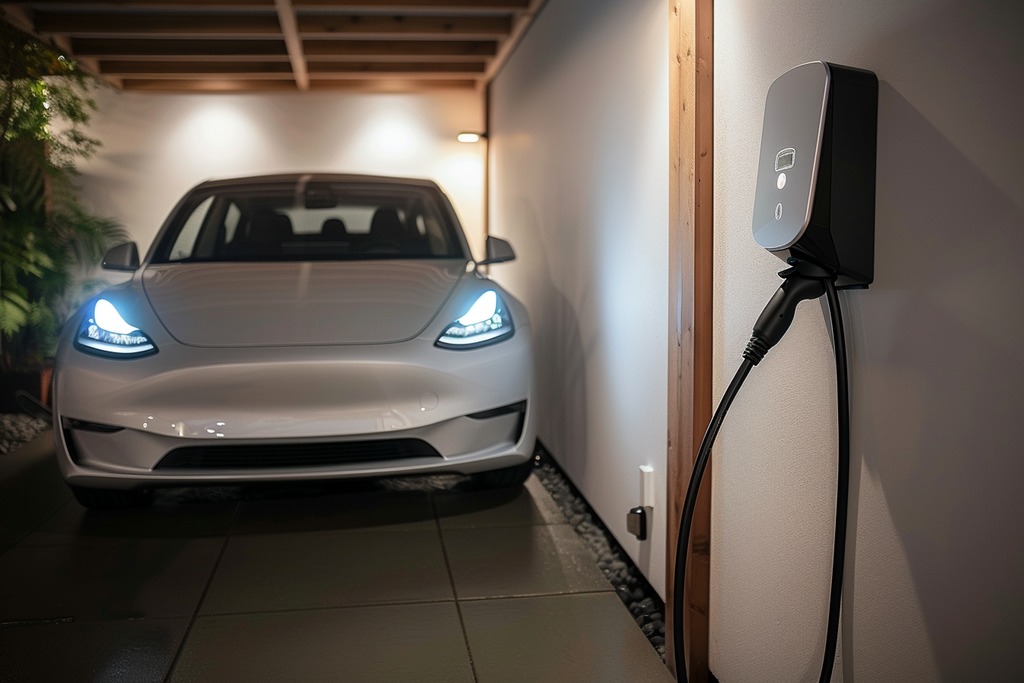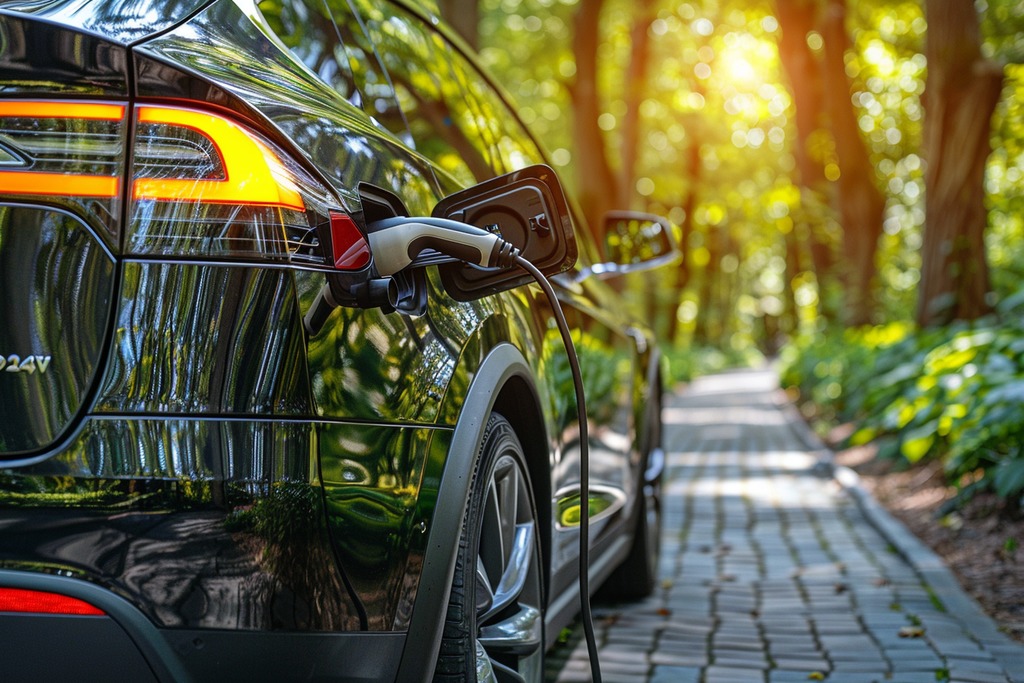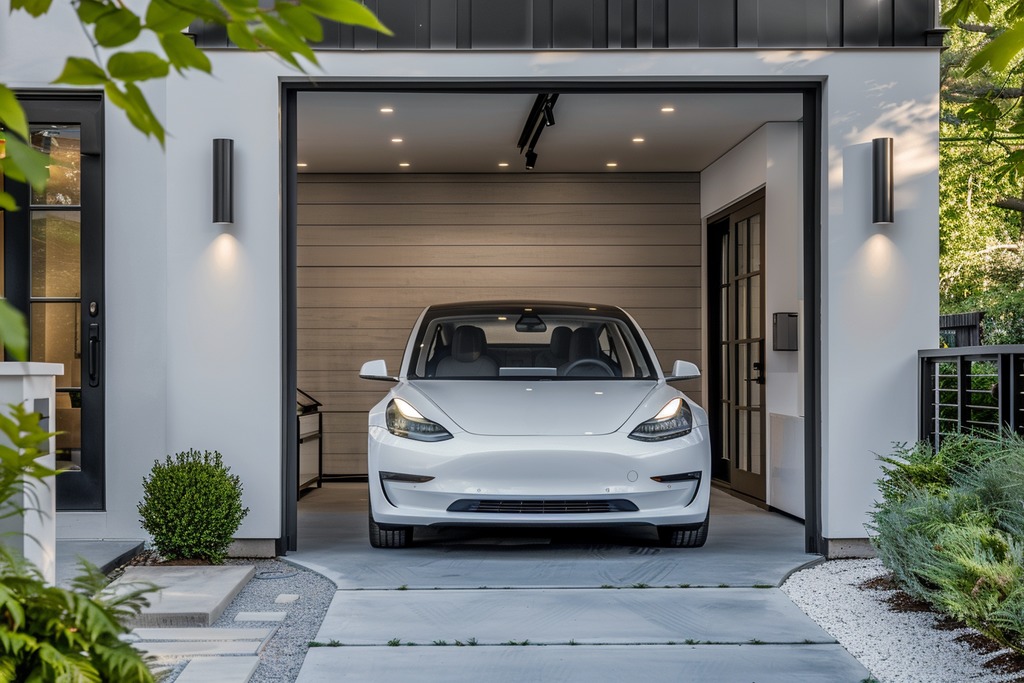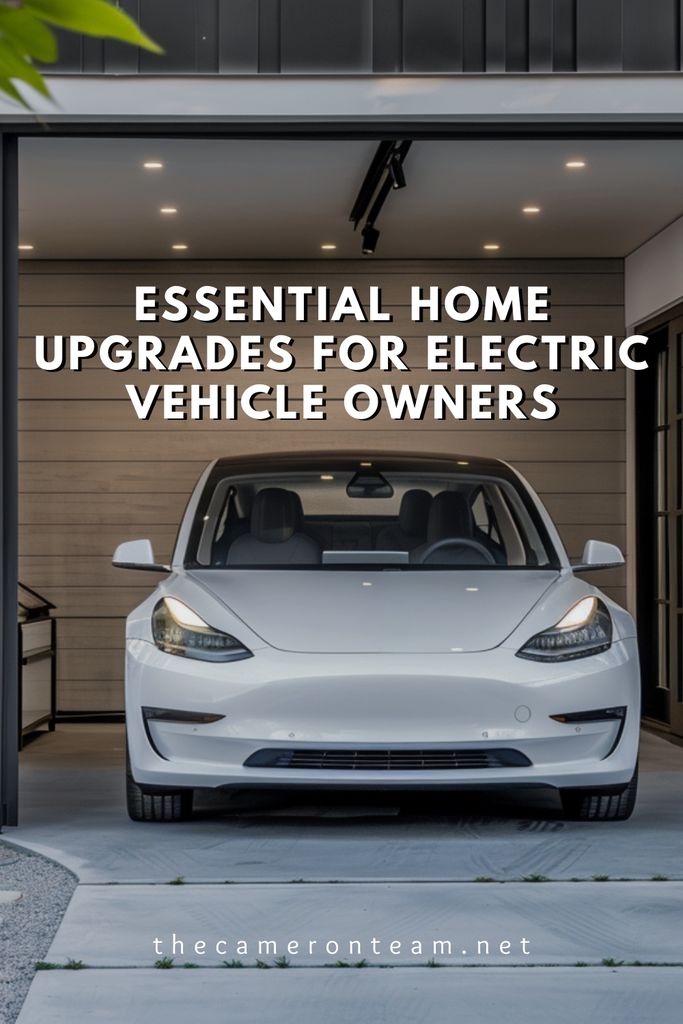As the adoption of electric vehicles (EVs) accelerates, many new and prospective owners are discovering that to fully embrace the electric lifestyle, certain home modifications are essential. These upgrades not only enhance the functionality and efficiency of charging an EV at home but can also increase the value of your property. Let’s dive into the most critical home upgrades for EV owners, their benefits, and their costs.
1. Installing a Home Charging Station
The most obvious upgrade is installing a dedicated EV charging station, often referred to as Electric Vehicle Service Equipment (EVSE). This is crucial for efficient charging.
- Types of Chargers:
- Level 1 Charger: This uses a standard 120-volt outlet. It’s the slowest charging option, generally adding about 4-5 miles of range per hour of charging. Most EVs come with a Level 1 charger, and no additional cost is incurred unless a new outlet is needed.
- Level 2 Charger: This requires a 240-volt outlet and can charge an EV much faster, typically providing about 25-35 miles of range per hour. These are ideal for overnight charging and are the most recommended home charging solution for EV owners.
- Cost: The cost of a Level 2 charger can range from $500 to $2,000, depending on the brand and capabilities. Installation costs can vary widely based on your home’s existing electrical capacity and the complexity of the installation, generally ranging between $1,000 and $3,000. It’s wise to consult a certified electrician to get an accurate estimate.
2. Upgrading Your Home’s Electrical Panel
Depending on the age of your home and its current electrical system, you may need to upgrade your electrical panel to handle the additional load of an EV charger, especially if you opt for a Level 2 charger.
- Cost: An electrical panel upgrade can typically cost between $1,500 and $4,000. This investment not only supports your EV charging needs but can also improve the overall safety and efficiency of your home’s electrical system.
3. Energy Management Systems
To optimize the energy consumption in your home, especially if you’re adding significant new loads like an EV charger, an energy management system can be incredibly beneficial.
- Cost: Basic systems start around $200 and can go up to $2,000 for more advanced setups. These systems help manage your energy usage more efficiently, potentially saving money on utility bills and reducing your environmental impact.
4. Solar Panels
Pairing your EV with a solar panel system can significantly offset your energy use and reduce the overall cost of powering your vehicle.
- Cost: The upfront cost of solar installation can be steep, ranging from $10,000 to $30,000 depending on the size and configuration of the system. However, tax incentives and the potential for reduced utility bills can make solar panels a worthwhile investment over time.
5. Reinforcement of Garage or Carport Structures
If you’re installing heavy equipment like a fast charger, or if you need to modify your garage or carport to accommodate an EV and its charging equipment, structural modifications might be necessary.
- Cost: This can vary greatly depending on the extent of the modifications needed but expect to start from a few hundred dollars to several thousand.
The Lifespan of a Home EV Charger
Home chargers for electric vehicles (EVs) are designed to be durable and withstand regular use over many years. Generally, you can expect a home EV charger to last anywhere from 5 to 10 years, or even longer, depending on a few key factors:
Quality and Type of Charger
High-quality chargers from reputable manufacturers tend to have longer lifespans. Level 2 chargers, which are more robust than their Level 1 counterparts, are typically built to endure more charging cycles and harsher conditions.
Installation
Correct installation by a certified electrician is crucial to ensuring the longevity of your EV charger. Proper installation minimizes the risk of electrical issues, which can affect performance and durability.
Usage
The frequency of use can impact the lifespan of a charger. Chargers that are used multiple times a day may wear out faster than those used less frequently. However, most home chargers are designed to handle daily use without significant degradation.
Environmental Conditions
Chargers exposed to extreme weather conditions, such as excessive heat, cold, or moisture, may have reduced lifespans. Protective measures, such as installing the charger in a garage or using a weather-resistant cover, can help mitigate these effects.
Maintenance
Regular maintenance, such as cleaning the charger and inspecting it for damage or wear, can extend its life. Most chargers require minimal upkeep, but keeping an eye on them ensures they continue to function effectively.
Technological Advancements
While the charger itself might still function perfectly, advancements in technology or changes in vehicle charging standards can make older chargers obsolete. This doesn’t mean the charger stops working, but it might not be as efficient or compatible with new vehicles.
Conclusion
Preparing your home for an EV involves some upfront investment, but the convenience and long-term savings can be substantial. By understanding the types of upgrades needed and their costs, you can plan effectively and make your transition to electric vehicle ownership as smooth as possible.
Upgrading your home for an EV not only supports your new vehicle but also enhances your home’s infrastructure and can increase its market value. If you’re considering an EV, now is the perfect time to evaluate your home’s readiness for these modern driving innovations.

